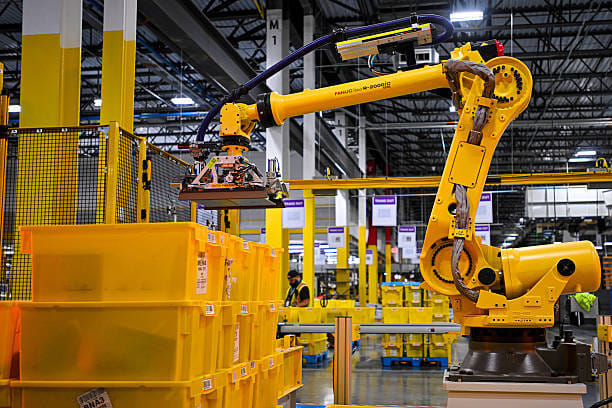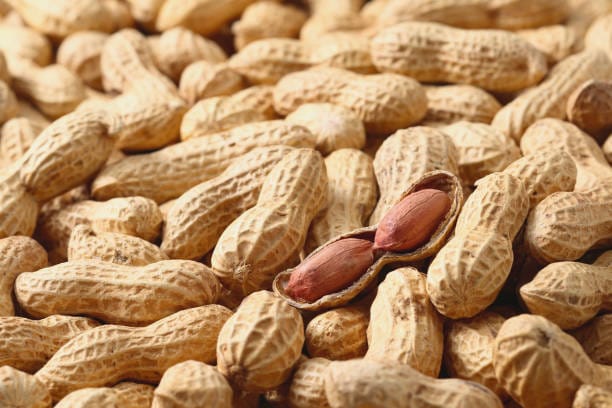
US companies are delivering their best results in four years

Designed by NextGen News
Business is booming. Over 85% of US businesses listed on the S&P 500 outperformed expectations this quarter, the highest share to do so since 2021, according to a Bloomberg Intelligence report.
Earnings superseason
The early data is especially shocking since just 13% of companies listed on the S&P 500 have reported Q3 earnings so far, signaling corporate America is holding up better than many expected.
So, who is doing so well? The robust earnings are coming from various industries, but there are a couple of standouts:
Coca-Cola’s sales hit $12.46 billion, up 5% from last year, thanks to the popularity of its lower-calorie options like Coke Zero.
GM just bumped its earnings outlook up by $2 billion after Silverado and Escalade sales hit their highest levels in years.
Consumer brands aren’t the only ones crushing it, though. Halliburton, the world’s second-largest oil service company, Danaher, a healthcare manufacturing company, and JPMorgan also turned in stellar earnings reports.
Why is this so shocking? While a majority of S&P 500 companies usually surpass expectations, such a sweeping success wasn’t expected, especially amid challenges like tariffs, economic uncertainty, and slowing growth. On top of that, analysts set the bar pretty high going into the reporting period.

Amazon is looking to replace 600,000 workers with robots

Miguel J. Rodriguez Carrillo / Getty Images
Be on the lookout for more giant mechanical arms. The e-commerce giant is planning to automate a large swath of its US operations, which would effectively replace more than half a million of its employees by 2033, according to leaked internal documents.
Robo-colypse
The leaked documents indicate that the company, which is the second largest employer in the US, ultimately plans for robots to handle up to 75% of its operations. That means:
The company expects to avoid hiring about 160,000 US workers by 2027, which it expects would save roughly $12.6 billion in costs.
Amazon has already deployed hundreds of thousands of robots in its facilities, with data showing the number of robots and automated systems outpacing (or at least rapidly catching up to) human workers in some locations.
What else did the docs say?
To smooth over concerns from its workforce about an incoming robot revolution, the leaked documents also indicate Amazon wants to play the PR game:
The company reportedly wants to soften its image by backing community programs like Toys for Tots and advising executives to stop using words like “automation,” instead using “cobots” to emphasize human-robot collaboration.
Although… Amazon pushed back, telling the NYT that the leaked docs don’t reflect its overall hiring strategy, and denied telling execs to dodge “automation” talk or supporting community programs to help offset PR concerns.

The NHL struck a landmark deal with prediction markets

Designed by NextGen News
Who’s ready to gamble? Earlier this week, the NHL inked a multiyear deal with prediction market platforms Kalshi and Polymarket, the first partnership of its kind between a major US sports league and prediction markets.
Betting big
Prediction markets allow users to bet on the outcomes of events, from the next Oscar winner to national elections, by buying and selling contracts that predict yes/no outcomes.
These platforms are giving traditional sportbooks a run for their money, especially considering Kalshi and Polymarket can operate in all 50 states, including those where sports betting is illegal, like California and Texas.
That’s because prediction markets (unlike sportsbooks bound by state gambling laws) operate as federally regulated financial exchanges where users bet against each other rather than the house.
That widespread availability has helped them gain a pretty large presence in the sports world:
Kalshi and Polymarket’s trading volume crossed $2 billion last week, beating their previous record set during the 2024 US presidential election.
Sports betting alone accounted for $867 million of trading volume on Kalshi and $415 million on Polymarket.
That’s not all: Polymarket is holding conversations with investors that would value the company between $12 billion and $15 billion, more than 10 times its value just four months ago, while Kalshi is reportedly weighing funding offers that value the platform at over $10 billion.
Everyone wants a piece of the pie: DraftKings, one of the largest sportsbooks in the US, recently acquired prediction market platform Railbird Technologies, signaling its push into the booming industry.
So, what does the NHL want with them?
The NHL’s President of Business, Keith Wachtel, said that working directly with prediction markets will “enhance the integrity of the league's games,” and allow the NHL to influence the types of bets that are offered.
Following the deal:
Kalshi and Polymarket gained access to the NHL's official data, logos, and trademarks, in line with the league's existing agreements with its official sportsbooks.
Kalshi already introduced contracts on the Stanley Cup champion, alongside similar offerings for the NFL and NBA championships.
However… The American Gaming Association (AGA) expressed concerns about the NHL's new partnership, with the AGA President and CEO Bill Miller describing the platforms as "backdoor gambling schemes" and warning that they may dodge state laws and consumer protection norms.
In partnership with Masterworks
Wall Street Isn’t Warning You, But This Chart Might
Vanguard just projected public markets may return only 5% annually over the next decade. In a 2024 report, Goldman Sachs forecasted the S&P 500 may return just 3% annually for the same time frame—stats that put current valuations in the 7th percentile of history.
Translation? The gains we’ve seen over the past few years might not continue for quite a while.
Meanwhile, another asset class—almost entirely uncorrelated to the S&P 500 historically—has overall outpaced it for decades (1995-2024), according to Masterworks data.
Masterworks lets everyday investors invest in shares of multimillion-dollar artworks by legends like Banksy, Basquiat, and Picasso.
And they’re not just buying. They’re exiting—with net annualized returns like 17.6%, 17.8%, and 21.5% among their 23 sales.*
Wall Street won’t talk about this. But the wealthy already are. Shares in new offerings can sell quickly but…
*Past performance is not indicative of future returns. Important Reg A disclosures: masterworks.com/cd.

Peanut allergies are now a thing of the past

Aflo Images / Getty Images
Parents who default to PB&J lunches can rejoice. New research released this week showed updated medical guidelines that recommended feeding peanuts to infants resulted in a significant drop in potentially life-threatening peanut allergies among children.
Anyone want a peanut?
The study, published on Monday (read here), found that almost 60,000 children have avoided developing peanut allergies since 2015, when health officials began urging parents to introduce peanuts to babies as young as 4 months.
According to the study, after the guidance was changed:
Peanut allergies in infants (aged 0-3) dropped by 27%, which further reduced to 40% once the recommendations were expanded to all children in 2017.
Since then, eggs have overtaken peanuts as the most common allergy in children, and parents are encouraged to introduce eight other common allergens (including peanuts) as early as four months, regardless of a child’s risk level.
A change in heart: Experts and doctors, led by Dr. Anthony Fauci, had previously advised against giving children peanuts before they turned three years old, which was discovered to be causing 80% of the allergies. Dr. Fauci later claimed it was “the wrong call” (see video).

These bags might help save the Everglades

Inversa / NextGen News
If you needed an excuse to get a new one, here you go. On Tuesday, Florida Gov. Ron DeSantis announced that the state teamed up with an unlikely partner to combat one of the biggest threats to the Everglades National Park... a luxury leather company.
Real skin in the game
DeSantis, alongside the Florida Fish and Wildlife Conservation Commission (FWC), said python removals in the Everglades have tripled this year, thanks in part to a state deal with a company that turns the snakes’ skins into leather goods like wallets, bags, and boots.
Since partnering up with Inversa Leathers last year:
Officials removed 1,022 Burmese pythons from the Everglades between May and July, up from 343 during the same period last year.
July alone saw 748 snakes removed, more than all of 2024 combined.
But how did Inversa help? During the past year, Inversa has served as a buyer and processor of the python hides, turning what would otherwise be a “waste product” of the Everglades ecosystem into a marketable resource, effectively funding conservation with commerce.
Looking forward: DeSantis said the initiative only cost $2 million and plans to seek renewed annual funding for it. The governor added that his administration also committed nearly $8 billion to Everglades restoration and water‐quality improvements, which will begin later this year.
How did you like today's newsletter?

Catch up on this week’s weird news

GIF via GIPHY
> A new study shows that when large language models are trained on high volumes of clickbait and social-media “junk” text, they show large declines in reasoning, memory, and ethical alignment, or, well, “brain rot”.
> Scientists created a chip implant and glasses that partially restored vision to patients with incurable blindness, becoming the first prosthesis in history to do so.
> Dust recovered from the far side of the Moon was found to contain fragments of a rare water-heavy meteorite, which was previously thought unlikely to survive lunar impacts.
> WalletHub released its annual rankings of the US’s 400 best college towns based on 31 different academic, social, and economic opportunities for students. See the list here.
> A woman in Michigan asked ChatGPT what numbers she should play for her Powerball ticket and ended up winning $100,000 thanks to the chatbot.






